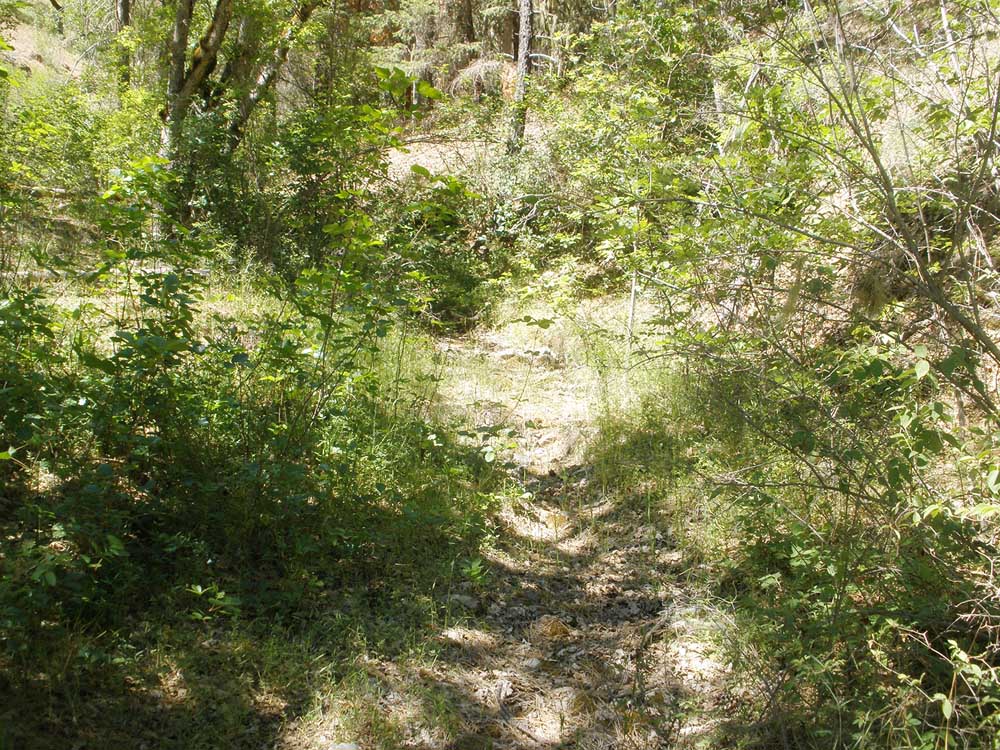Wyden defends River Democracy Act in virtual town hall
Published 5:00 pm Tuesday, August 31, 2021

- Bear Gulch in Southern Oregon was nominated as a Wild and Scenic River under the River Democracy Act introduced by Oregon Sens. Ron Wyden and Jeff Merkley.
HERMISTON, Ore. — Legislation that would add nearly 4,700 miles of wild and scenic rivers across Oregon would have no impact on private land or existing property rights, according to the bill’s chief architect, Sen. Ron Wyden.
Wyden, an Oregon Democrat, introduced the River Democracy Act in February based on more than 15,000 public nominations from all corners of the state.
On Aug. 31, Wyden defended the bill during an hour-long virtual town hall. The legislation has faced opposition from rural counties over whether it would add new restrictions on grazing, timber harvest and recreational access.
Speaking from Hermiston in northeast Oregon, Wyden pledged the bill would not go forward without “loophole-free, airtight” protections for private property.
Rather, he said it applies only to federal lands and was written specifically not to interfere with existing property, grazing and water rights.
“Protecting existing rights was part of our effort to strike a balance,” Wyden said.
If passed, the River Democracy Act would roughly triple the number of wild and scenic rivers in Oregon. The National Wild and Scenic Rivers System was established in 1968 to preserve rivers with outstanding natural, cultural and recreational values.
The bill also widens protective buffers from a quarter-mile to half-mile on both sides of designated streams, adding up to 3 million acres of protected land.
Earlier this year, the American Forest Resource Council, a regional timber trade association, conducted its own analysis of waterways nominated for inclusion in the bill. The group found that just 15% were actually labeled as “rivers,” with most being identified as streams, gulches, draws or unnamed tributaries.
The AFRC and other opponents have argued this is a misuse of the Wild and Scenic Rivers System — though Wyden countered that intermittent streams are not only valid for protection under the law, but necessary for watersheds.
“I’ve come to think that there’s almost a transportation analogy here that’s appropriate,” Wyden said. “You don’t manage traffic just by building highways. You need connecting streets, alleyways and sidewalks. The same, in fact, applies to most river systems.”
Approximately 2 million Oregonians, or nearly half the state’s total population, depend on intermittent streams for clean drinking water, Wyden added.
The bill also requires the U.S. Forest Service and Bureau of Land Management to assess wildfire risks in each wild and scenic river corridor. The agencies would then have up to six years to develop mitigation plans, working with local, state and tribal governments.
The bill would create a $30 million per year fund to restore and rehabilitate riparian areas that do burn in a wildfire, Wyden said.
”What I see the River Democracy Act doing is creating a multiple-use toolbox so we have this array of tools and we can build on existing law,” Wyden said.
Supporters of the bill did speak during the virtual town hall, including representatives of the Nez Perce Tribe and Confederated Tribes of the Umatilla Indian Reservation.
Kat Brigham, CTUIR chair, said she is pleased with the River Democracy Act, and that it reinforces stream restoration already undertaken by the tribes.
“It moves us closer to what we are working toward — building, protecting and enhancing cold, clean water, not only for our first foods, but for ourselves,” Brigham said.
Others, however, say their questions remain unanswered.
In a memo released shortly after the meeting, the AFRC pushed back against the bill, arguing wild and scenic designations would impose restrictions on forest management and actually increase wildfire risk in the protected stream corridors.
The bill would also “dramatically increase management costs and complexity on-the-ground, create conflicts between user groups, and distract and overload federal agencies already overwhelmed by catastrophic wildfire management and response,” the memo states.
Prior to the town hall, the Eastern Oregon Counties Association sent a letter to Wyden outlining similar concerns related to public access, fire prevention and property rights.
Going forward, Wyden said that while people may have differences of opinion, he hopes to keep the lines of communication open to answer questions and provide feedback.
”I’m committed to getting this right,” he said.






